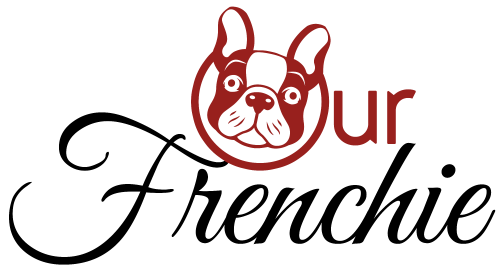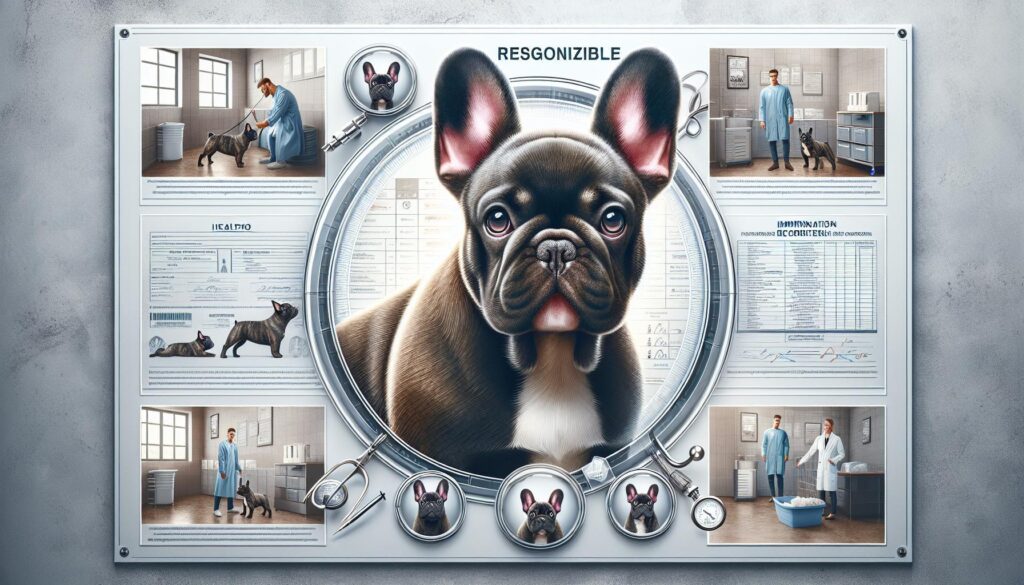About
How to Spot a Responsible French Bulldog Breeder
Page Contents
Choosing the right French Bulldog breeder is crucial for ensuring the health and happiness of your future pet. With their charming personalities and distinctive bat-like ears, french bulldogs have skyrocketed in popularity, but not all breeders maintain the standards necessary for producing healthy dogs. In this article, we explore key indicators of a responsible breeder, from health screenings and ethical breeding practices to proper socialization techniques. By learning how to identify these traits, you can make an informed decision and find a breeder who prioritizes the well-being of their dogs, setting the foundation for a loving and long-lasting companionship.
Research Breeders Reputation
When it comes to finding a reputable breeder for your French Bulldog, conducting thorough research on their reputation is crucial. Start by seeking recommendations from trusted sources such as veterinarians, breed clubs, or friends who own French Bulldogs. Onc you have a list of potential breeders, delve deeper into their backgrounds.
Visit online forums and social media groups dedicated to French Bulldog enthusiasts. These platforms frequently enough have discussions and reviews about breeders, providing firsthand accounts of experiences with them. Additionally, reputable breeders are frequently enough members of recognized canine organizations, so check if they are affiliated with groups like the American Kennel Club (AKC) or the French Bulldog Club of America (FBDCA). Membership in these organizations frequently enough signifies a commitment to ethical breeding practices.
- Look for breeders with a strong online presence, including a professional website and active social media profiles.
- Read reviews and testimonials from previous buyers to gauge their satisfaction and experiences.
- Check if the breeder has received any awards or recognitions from breed clubs or dog shows.
reach out directly to the breeders on your shortlist. A responsible breeder will be open to answering questions about their breeding practices, health testing, and the lineage of their dogs. They should also be willing to provide references from past buyers. By taking these steps, you’ll be better equipped to select a breeder who prioritizes the health and well-being of their French Bulldogs.
Visit Breeders Facility
When considering a French Bulldog breeder, it’s crucial to visit their facility to ensure they maintain high standards of care and breeding practices. Observing the environment firsthand can provide valuable insights into the breeder’s operations and the well-being of their dogs.
During your visit, take note of the cleanliness and organization of the space. A responsible breeder will maintain a **clean and hygienic environment** for their dogs. Look for signs that the dogs are living in a healthy setting, such as clean water bowls, fresh bedding, and ample space for exercise and play. The facility should not have any strong, unpleasant odors, which can indicate poor sanitation practices.
- Observe the dogs’ behavior. They should appear **happy, social, and well-adjusted**, not fearful or aggressive.
- Check for adequate ventilation and lighting, which are essential for the dogs’ health and comfort.
- Ask the breeder about their daily care routines, including feeding, grooming, and exercise schedules.
Engage with the breeder and ask questions about their breeding practices. A reputable breeder will be open and obvious, willing to share data about the lineage, health screenings, and any potential genetic issues within their breeding lines. This openness is a hallmark of a responsible breeder who prioritizes the welfare of their dogs over profit.
Evaluate Health Testing Practices
When assessing a breeder’s commitment to the health of their French Bulldogs, it’s crucial to delve into their health testing practices. A responsible breeder will prioritize the well-being of their dogs and be transparent about the health screenings they conduct. Look for breeders who perform comprehensive genetic testing to rule out hereditary conditions common in french Bulldogs, such as brachycephalic obstructive airway syndrome (BOAS), hip dysplasia, and allergies.
Ask the breeder for documentation of the health tests performed on both the puppy’s parents and the puppy itself. **Key tests** to inquire about include:
- **Hip and elbow evaluations**: To assess joint health and potential dysplasia.
- **heart examinations**: To detect congenital heart defects.
- **Eye certifications**: To ensure the absence of inherited eye diseases.
- **DNA tests**: for identifying genetic markers linked to breed-specific conditions.
Additionally, a trustworthy breeder will be more than willing to discuss the results of these tests and explain any potential health issues. They should also provide a health guarantee and be open to sharing their veterinarian’s contact information for further assurance. By thoroughly evaluating these practices, you can ensure that your future furry friend comes from a healthy and responsible breeding environment.
Observe Puppy Socialization
When visiting a breeder, it’s essential to pay attention to how the puppies are being socialized.A responsible breeder will ensure that their French Bulldog puppies are exposed to a variety of environments, sounds, and experiences from an early age. This helps the puppies develop into well-adjusted adults. Look for signs that the puppies are agreeable with human interaction and are not overly shy or aggressive.
**Key indicators of good socialization include:**
- **Interaction with different people:** Puppies should be familiar with different ages, genders, and appearances of people, including children, to ensure they are adaptable and kind.
- **Exposure to household noises:** A breeder should introduce puppies to common sounds such as vacuum cleaners, doorbells, and kitchen appliances to prevent fearfulness later on.
- **Playtime with siblings:** Observe if the puppies are playing well with their littermates, as this is crucial for learning bite inhibition and social cues.
Additionally, responsible breeders often start basic training and handling exercises, such as leash walking and gentle grooming. This early exposure helps the puppies build confidence and reduces anxiety in new situations. By carefully observing how a breeder socializes their puppies,you can make a more informed decision and choose a French bulldog that is well-prepared for a happy,interactive life with your family.
Assess Breeders Knowledge
One of the key indicators of a responsible breeder is their depth of knowledge about the French Bulldog breed. A reputable breeder should be able to discuss the breed’s history, characteristics, and specific needs with ease. They should provide detailed information about the health screenings and genetic tests they conduct on their breeding dogs. This ensures that they are taking proactive steps to avoid hereditary health issues.
Engage the breeder in a conversation about their breeding practices. Ask questions such as:
- What are the most common health problems in French Bulldogs, and how do you address them?
- Can you explain the importance of socialization and how you ensure the puppies are well-socialized?
- What kind of diet do you recommend for a French Bulldog, and why?
A learned breeder will have comprehensive answers and will be excited about sharing their expertise. They should also be able to provide references from past buyers and offer follow-up support after you take your puppy home. **Transparency** and **willingness to educate** are hallmarks of a responsible breeder who truly cares about the welfare of their dogs and the satisfaction of their clients.
Review Breeders Contracts
When evaluating a French Bulldog breeder, examining the breeder’s contract is crucial.A well-drafted contract is a hallmark of a responsible breeder and provides insight into their commitment to ethical breeding practices. Here are key elements to look for:
- Health Guarantees: A reputable breeder will include a health guarantee that covers genetic conditions common to French Bulldogs.This demonstrates their dedication to breeding healthy dogs and their willingness to stand behind their puppies.
- Return Policy: Responsible breeders offer a return policy, ensuring that if circumstances change, the dog can be returned to them. This shows their commitment to the lifelong welfare of their dogs.
- Spay/Neuter Agreement: many breeders require a spay/neuter agreement to prevent irresponsible breeding. This clause often stipulates that the dog must be neutered or spayed by a certain age unless purchased with breeding rights.
- Detailed care instructions: Contracts should include comprehensive care instructions, indicating the breeder’s concern for the puppy’s well-being. This might cover diet, exercise, and veterinarian check-ups.
Additionally, a responsible breeder will be transparent about their contract and willing to discuss any terms or conditions. They should encourage potential buyers to ask questions, ensuring that all parties are clear on their responsibilities and expectations. This openness reflects their professionalism and integrity in the breeding process.
Check Post-Adoption Support
After bringing your new French Bulldog home, ongoing support from the breeder can be invaluable. A responsible breeder is committed to the well-being of their puppies even after adoption. They should offer guidance on health,nutrition,and training,ensuring a smooth transition for both you and your new pet. This support reflects their dedication to the breed and their puppies’ lifelong welfare.
Look for breeders who provide a **post-adoption package** that may include:
- Detailed care instructions specific to French bulldogs.
- Access to veterinary records and vaccination schedules.
- Recommendations for quality food and supplements.
- contact information for follow-up questions or emergencies.
**Community connections** are also a hallmark of responsible breeders. They might invite new owners to join a network of previous adopters, creating a supportive community where experiences and advice are shared. This network can be a valuable resource for new owners, offering insights into common breed-specific challenges and solutions.
Understand Breeders ethics
When evaluating a French Bulldog breeder, it’s crucial to delve into their ethical practices to ensure the well-being of the puppies and the integrity of the breed. A responsible breeder prioritizes the health and happiness of their dogs above all else. They adhere to strict breeding standards and are transparent about their practices. Here are some key ethical considerations to keep in mind:
- Health Testing: Ethical breeders conduct thorough health screenings for genetic conditions common in French Bulldogs, such as hip dysplasia and brachycephalic syndrome. They should provide documentation of these tests and be willing to discuss the health history of the puppy’s lineage.
- Living Conditions: Puppies should be raised in a clean, nurturing environment.Breeders who allow you to visit their facilities and meet the puppy’s parents demonstrate transparency and a commitment to animal welfare.
- Breeding Frequency: responsible breeders limit the number of litters a female dog has to ensure her health and recovery. They typically do not breed dogs younger than two years or older than six, respecting the natural life cycle of their animals.
- Socialization: Puppies should be well-socialized from an early age. Breeders who expose puppies to various environments, people, and other animals help ensure that they grow into well-adjusted adults.
Along with these points, ethical breeders often have a waiting list for their puppies, as they breed for quality, not quantity. They are committed to the lifelong welfare of their dogs and will offer guidance and support to new owners. By prioritizing these ethical practices, breeders help maintain the integrity and health of the French Bulldog breed, ensuring that each puppy finds a loving and responsible home.
To Conclude
finding a responsible French Bulldog breeder requires diligence and attention to detail. By prioritizing health screenings, ethical breeding practices, and transparent interaction, you can ensure a happy and healthy addition to your family. Remember to visit breeders in person, ask questions, and trust your instincts. A responsible breeder will not only provide a loving environment for their dogs but will also be committed to ongoing support for you and your new pet. By making informed choices, you contribute to the well-being of this beloved breed and promote ethical breeding practices.

